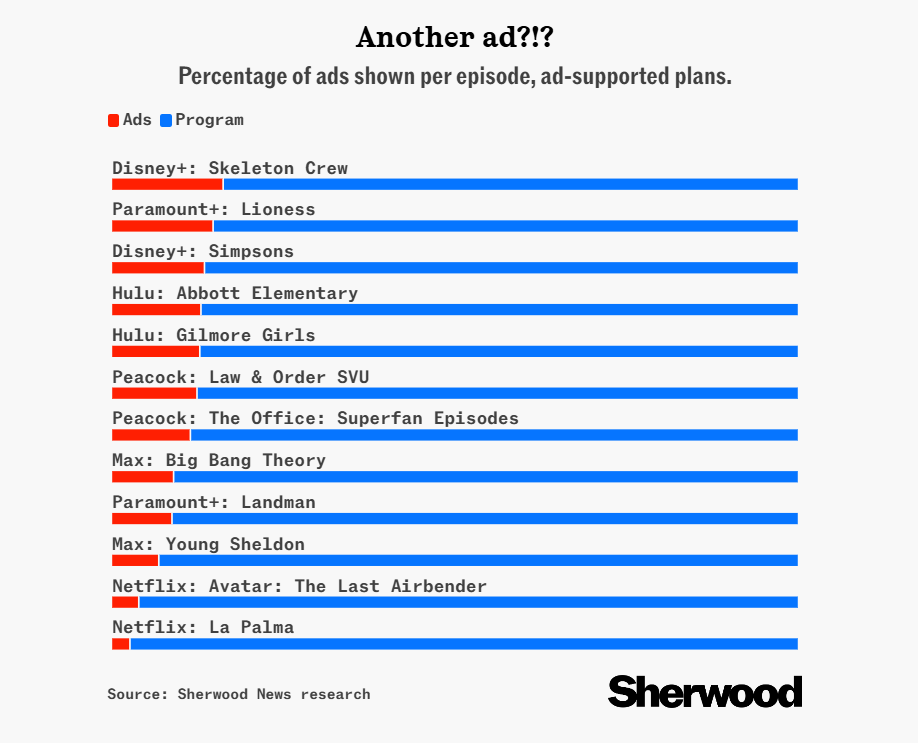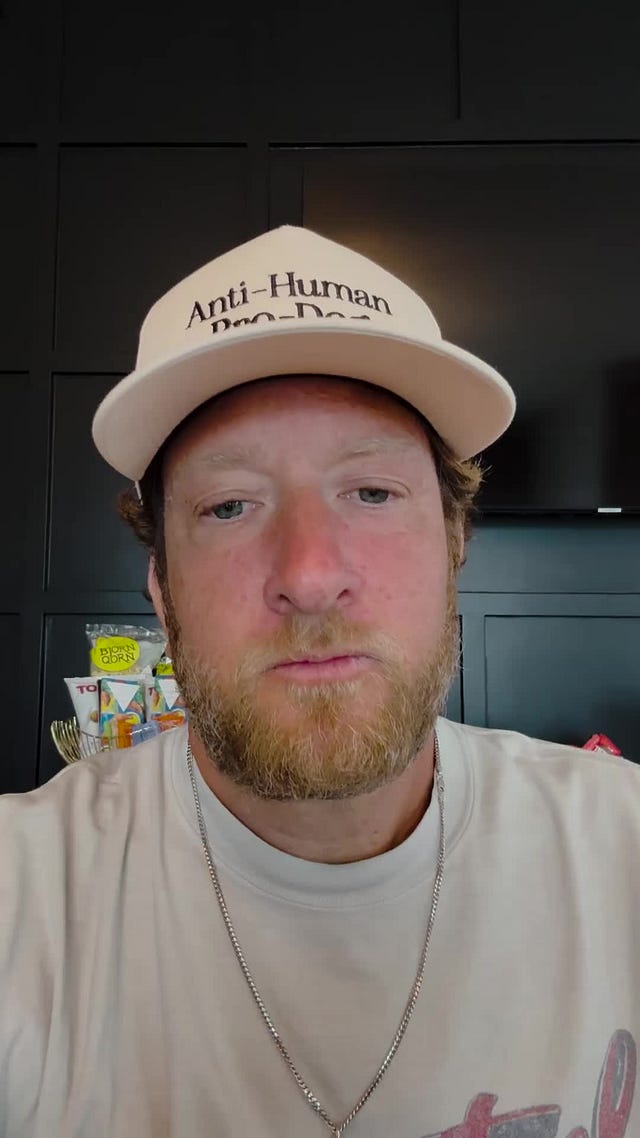Simon Owens's Tech and Media - The end of the live streamer mega deals
Welcome! I'm Simon Owens and this is my media industry newsletter. If you've received it, then you either subscribed or someone forwarded it to you. If you fit into the latter camp and want to subscribe, then you can click on this handy little button: Let’s jump into it… The end of the live streamer mega dealsRemember when huge video networks like Mixer, Facebook, YouTube, and Kick would pay gaming live streamers tens of millions of dollars to move exclusively over their platforms? Well, now that they’re no longer offering those mega deals, the creators who originally signed them are all migrating back to Twitch:
It seemed strange at the time and even stranger in retrospect that all the major video platforms decided, en masse, that live video game streamers were deserving of huge, upfront payments — a type of deal that was extended to virtually no other kind of creator. Like how did they conclude that this one type of content was deserving of a contract that not only paid out tens of millions of dollars but also locked the creator into a single platform? Was there something unique about live streaming, or is this just an example of a herding effect where Mixer signed that huge deal with Ninja and then every other platform determined that it somehow posed an existential threat to its own streaming business? Perhaps uncoincidentally, I've never gotten the appeal of livestreams. Sometimes I try to tune into a stream for a huge creator just to better understand their allure, and I almost always come away feeling that this content is just completely unwatchable. There's just some fundamental generational divide that I can't cross, no matter how hard I try. In other words, this content just makes me feel old. Not all streamer ad tiers are the sameThis is a great breakdown of the ad loads for all the major streaming platforms that have cheaper, ad-supported tiers. It doesn't surprise me that Netflix has the lightest ad load given the company's longtime avoidance of ads and how much it's always prioritized user experience over short term revenue gains It'd be interesting to compare this to the average ad-load of YouTube, which typically packs in a bunch of ads but allows you to skip many of them after five seconds. I'd also love to see a comparison to linear television, which my gut tells me contains way more ads per hour than any streamer. Apple TV’s smart marketing strategyThis is pretty interesting. Apple TV+ is building buzz for its upcoming season 2 of Severance by distributing the first season for free on Roku:
This is a really smart strategy and I don't see why more streamers don't do it. By the time a second season of a show comes out, you've probably maximized the number of paid subscribers who are willing to watch the first season; by releasing that season for free, you not only create the opportunity to generate more revenue through advertising, but you vastly expand the universe of people who are excited to watch season 2, thereby increasing your subscription conversions. Imagine if every streamer did this when it wanted to build hype for a new season. Why self-published authors rarely cross over into traditional publishingOne of the most successful book publishers in recent years specializes in finding up-and-coming self-published authors and signing special deals that allow them to keep their ebook and audiobook rights:
Whenever I speak to an author who makes six figures a year self-publishing their novels, I always end up asking them: "So has anyone from the traditional publishing world ever reached out to you?" The answer is almost always no. It just boggles my mind that the big publishers aren't constantly on the lookout for authors who have already proved that there's a vibrant market for their work — especially when there's ample public data that can be used to identify them. There are exceptions to this rule, of course, but often an self-published author needs to be approaching seven figures in revenue before the traditional publishers even take notice. Anyway, it's good to see that someone finally capitalized on this huge market opportunity. Barstool’s unique approach to creator relationsThis is a fascinating breakdown of how Barstool works with its creators — in this case a podcast co-host on one of its hit shows. Barstool paid her a base salary of $175,000 and then also shared 70% of revenue with her whenever the company upsold a sponsorship on one of her personal social media accounts (eg, if it sold a $10,000 sponsorship on her Instagram account she'd get $7,000). Furthermore, Barstool tried to negotiate a contract for launching a new podcast with her, and in that scenario she'd continue earning her $175,000 base salary, and then Barstool would split the proceeds with her 50/50 once it had recouped the $175,000. I don't consume any Barstool content and I know Dave Portnoy can be a polarizing figure, but I've always been impressed with how he spots and cultivates creator talent. He has a track record of plucking out relatively unknown personalities and helping to blow them up into huge stars — Alex Cooper being the most famous example. I think a lot of traditional media companies should copy his playbook of treating content creators like partners, as opposed to employees. There's a lot of upside when your creators have just as much incentive as you do to make a media property succeed. Please don’t take my newsletter and podcast for grantedI rely on paid subscriptions for the vast majority of my revenue. Without enough paid subscribers, I can’t continue justifying spending 40+ hours a week on my newsletter and podcast, and I’ll need to shut them down so I can seek out other work. Let me put this another way: if you’d be disappointed if I suddenly announced that I’m shutting down my newsletter and podcast — a very real possibility — then you should probably subscribe. Seriously, it’s only $125 for a full year, and if you’re using insights from my content to improve your own business, then that $125 pays for itself. And if you use the link below, you get 20% off for the first year: Huge creators are now building out their own media networksAlex Cooper is in the media empire building business. Not only does she host one of the world’s most popular podcasts, but she’s also partnered with several up-and-coming creators to launch podcasts within her Unwell network. And now she’s even acquiring already-existing podcasts. I do think think we're going to see this trend more and more: a star creator decides they can use their audience and resources to help other up-and-coming creators grow quicker. Johnny Harris is a good example of this framework. He built up a full staff of producers, editors, animators, and music composers to support his own channel, which has 6.25 million subscribers. He then launched a network that allows him to help other colleagues grow their channels — first Sam Ellis with Search Party (600,000 subscribers and climbing) and then more recently with Christophe Haubursin (100,000 subscribers and climbing). There are so many talented creators out there that could grow so much faster if they had the right production and monetization support, but they don't currently have the resources to hire staff. Networks like the ones run by Cooper and Harris essentially operate like VC firms, in that they identify these up-and-comers, invest in their growth, and then reap the benefits when their channels blow up. It's a great model. Podcasts are still undervaluedNew York magazine published a good piece about video podcasts entering the mainstream and what this means for an industry that spent its first 15 years building mostly audio-only products:
The most exciting thing about the rise of video podcasting is how much it’s poised to vastly expand the industry. Not everyone listens to podcasts, but virtually everyone can stumble across a short podcast clip on Instagram Reels or TikTok, and millions more will sit through longform discussions on YouTube. Video podcasts basically give podcasters access to video-based advertising, which, in terms of market share, is worth tens of billions of dollars more than audio-based advertising. Video podcasts allow podcasters to compete with virtually every other media entity, especially now that YouTube is the most-used streaming app on TVs. Until recently, podcast revenue has been modest — supposedly the entire industry generated only $2 billion in 2024 — but I think video podcasts will place it on a much steeper growth trajectory. The medium is still vastly undervalued by most legacy media companies. WashPo’s biggest problemI think it’s probably an understatement to say that it’s been a challenging year for the Washington Post. First its publisher came under fire for allegedly hiding evidence during the UK phone hacking scandal. Then the company lost 10% of its paid subscriber base when Jeff Bezos prevented it from running a Kamala Harris endorsement. And now it’s losing several of its star reporters to rival media outlets:
I think the biggest problem for WashPo is that its core journalistic focus — Washington politics and policy — is just too oversaturated as a beat. I mean, can anyone honestly say at this point that we lack for political news in this country? Too many smaller, more nimble media outlets have entered the fray, to the point where WashPo would struggle to differentiate its offering even if it managed to hold on to its top talent. Not only does public interest in politics wax and wane depending on whether it's an election year, but brands are increasingly uninterested in advertising against that sort of content. When you add all this together, then it's no wonder that the paper has been losing money for years. If Bezos truly wants the paper to compete at the national level, then he needs to seriously invest in diversifying its coverage areas well beyond Washington. That means expanding its teams covering tech, fashion, finance, gaming, and entertainment. It means placing more reporters in important regional hubs all around the world. It means launching other verticals outside of news — just as The New York Times heavily invested in its gaming, recipes, and product review content. That's not to say the paper should completely abandon its Washington roots — in fact, its coverage of the White House and Capitol Hill will continue to be its biggest calling card — but it seems pretty clear to me that political coverage alone won't dig it out of its current hole. After I posted about this on social media, James daSilva left this thoughtful comment:
This was my response:
How to grow a YouTube channel from scratchA liberal pundit who initially gained a following on Twitter decided to start uploading videos to YouTube only seven months ago and grew to 250,000 subscribers in that short amount of time. This is an interesting breakdown of what he learned as a newbie YouTube creator:
Meta still sucks at creator monetizationMeta shut down yet another one of its creator monetization experiments, this time a feature that placed ads on Instagram profiles. I think this just speaks to the capricious nature of Meta's revenue sharing with creators. One could argue that its entire $134 billion in annual revenue is entirely dependent on the work of creators, yet instead of sharing a set percentage with them — as is the practice of platforms like Spotify, YouTube, and Substack — it rolls out these inconsequential, half-hearted payout systems that are often shuttered at the drop of the hat. As a result, no creator can ever truly build a business within Meta's ecosystem. That's why Facebook has become an AI-infested ghost town and Instagram consists mostly of recycled TikTok and YouTube Shorts content. I continue to be so glad I never relied heavily on Meta-owned platforms to build my audience. For me personally, Threads is the perfect example of why it’s impossible to build a true following there; I've regularly had weeks where my posts generated hundreds of thousands of impressions, yet my follower count there is actually SHRINKING. That's because no Meta-owned platform prioritizes audience loyalty. All views there are empty calories. ICYMI: How Oovvuu grew its video platform to over 400 million streams per dayYou're currently a free subscriber to Simon Owens's Media Newsletter. For the full experience, upgrade your subscription. |
Older messages
The biggest creators are no longer in the merch business
Wednesday, January 8, 2025
PLUS: The media isn't dying. It's thriving. ͏ ͏ ͏ ͏ ͏ ͏ ͏ ͏ ͏ ͏ ͏ ͏ ͏ ͏ ͏ ͏ ͏ ͏ ͏ ͏ ͏ ͏ ͏ ͏ ͏ ͏ ͏ ͏ ͏ ͏ ͏ ͏ ͏ ͏ ͏ ͏ ͏ ͏ ͏ ͏ ͏ ͏ ͏ ͏ ͏ ͏ ͏ ͏ ͏ ͏ ͏ ͏ ͏ ͏ ͏ ͏ ͏ ͏ ͏ ͏ ͏ ͏ ͏ ͏ ͏ ͏ ͏ ͏ ͏ ͏ ͏ ͏ ͏ ͏ ͏
Why news publishers will probably never solve their keyword blocking problem
Friday, January 3, 2025
PLUS: Bill Simmons walked so Pat McAfee could run ͏ ͏ ͏ ͏ ͏ ͏ ͏ ͏ ͏ ͏ ͏ ͏ ͏ ͏ ͏ ͏ ͏ ͏ ͏ ͏ ͏ ͏ ͏ ͏ ͏ ͏ ͏ ͏ ͏ ͏ ͏ ͏ ͏ ͏ ͏ ͏ ͏ ͏ ͏ ͏ ͏ ͏ ͏ ͏ ͏ ͏ ͏ ͏ ͏ ͏ ͏ ͏ ͏ ͏ ͏ ͏ ͏ ͏ ͏ ͏ ͏ ͏ ͏ ͏ ͏ ͏ ͏ ͏ ͏ ͏ ͏ ͏ ͏ ͏ ͏ ͏
There’s more room for niche “Morning Brew for X” newsletters
Friday, December 20, 2024
PLUS: Does Substack help creators with audience growth? ͏ ͏ ͏ ͏ ͏ ͏ ͏ ͏ ͏ ͏ ͏ ͏ ͏ ͏ ͏ ͏ ͏ ͏ ͏ ͏ ͏ ͏ ͏ ͏ ͏ ͏ ͏ ͏ ͏ ͏ ͏ ͏ ͏ ͏ ͏ ͏ ͏ ͏ ͏ ͏ ͏ ͏ ͏ ͏ ͏ ͏ ͏ ͏ ͏ ͏ ͏ ͏ ͏ ͏ ͏ ͏ ͏ ͏ ͏ ͏ ͏ ͏ ͏ ͏ ͏ ͏ ͏ ͏ ͏ ͏ ͏ ͏ ͏
How the Money for the Rest of Us podcast built a six figure membership platform
Thursday, December 19, 2024
Founder David Stein also launched a data-rich investing app. ͏ ͏ ͏ ͏ ͏ ͏ ͏ ͏ ͏ ͏ ͏ ͏ ͏ ͏ ͏ ͏ ͏ ͏ ͏ ͏ ͏ ͏ ͏ ͏ ͏ ͏ ͏ ͏ ͏ ͏ ͏ ͏ ͏ ͏ ͏ ͏ ͏ ͏ ͏ ͏ ͏ ͏ ͏ ͏ ͏ ͏ ͏ ͏ ͏ ͏ ͏ ͏ ͏ ͏ ͏ ͏ ͏ ͏ ͏ ͏ ͏ ͏ ͏ ͏ ͏ ͏ ͏ ͏ ͏ ͏
This politics newsletter was almost destroyed by Facebook's algorithm changes
Thursday, December 19, 2024
Ben Cohen saved The Daily Banter by pivoting from advertising to a subscription-based business model. ͏ ͏ ͏ ͏ ͏ ͏ ͏ ͏ ͏ ͏ ͏ ͏ ͏ ͏ ͏ ͏ ͏ ͏ ͏ ͏ ͏ ͏ ͏ ͏ ͏ ͏ ͏ ͏ ͏ ͏ ͏ ͏ ͏ ͏ ͏ ͏ ͏ ͏ ͏ ͏ ͏ ͏ ͏ ͏ ͏ ͏ ͏ ͏ ͏ ͏
You Might Also Like
GeekWire 200 CEO survey | Amazon’s entry in the quantum race
Thursday, February 27, 2025
All-woman crew will join Blue Origin's next suborbital spaceflight ADVERTISEMENT GeekWire SPONSOR MESSAGE: SEA Airport Is Moving from Now to WOW!: Take a virtual tour of what's coming.
😑 How your tax season just got more annoying
Thursday, February 27, 2025
While raking in campaign cash from tax prep companies, the GOP is trying to kill a free filing system and gut IRS customer service. 🔥 Today's Lever story (attached below): What happens when you
☕ Show time
Thursday, February 27, 2025
How A24 brought the play central to “Sing Sing” to life for awards season. February 27, 2025 View Online | Sign Up Marketing Brew presented by Future Cardia It's Thursday. TikTok may be back in app
☕ Pin in the game
Thursday, February 27, 2025
Pinterest's shopping transformation. February 27, 2025 View Online | Sign Up Retail Brew Presented By AT&T Connected Spaces Hello, it's Thursday. In a recent survey by the American Customer
The Trump-Zelensky mineral rights deal.
Thursday, February 27, 2025
Plus, would tariffs on Canadian energy imports hurt US consumers? The Trump-Zelensky mineral rights deal. Plus, would tariffs on Canadian energy imports hurt US consumers? By Isaac Saul • 27 Feb 2025
537500 is your Substack verification code
Thursday, February 27, 2025
Here's your verification code to sign in to Substack: 537500 This code will only be valid for the next 10 minutes. If the code does not work, you can use this login verification link: Verify email
DOGE Said It Cut $232 Million From Social Security Budget. It Was Only About Half a Million.
Thursday, February 27, 2025
The cut, an anti-trans attack, was the latest example of confusion sown by bold claims that wither under scrutiny. Most Read DOGE Said It Cut $232 Million From Social Security Budget. It Was Only About
Mushroom Font
Thursday, February 27, 2025
Is God A Mushroom? // The Hardest Working Font In Manhattan Mushroom Font By Caroline Crampton • 27 Feb 2025 View in browser View in browser Is God A Mushroom? John Last | Long Now | 26th February 2025
⚔️ ‘Witcher 4’ Devs Reveal New Details
Thursday, February 27, 2025
Plus: James Gunn just pointed out Marvel's biggest problem — again. Inverse Daily A new behind-the-scenes video on The Witcher 4's reveal trailer gives us a few hints at what the development
Is the EU drifting right and being cut adrift?
Thursday, February 27, 2025
+ Gene Hackman, an actor's actor


